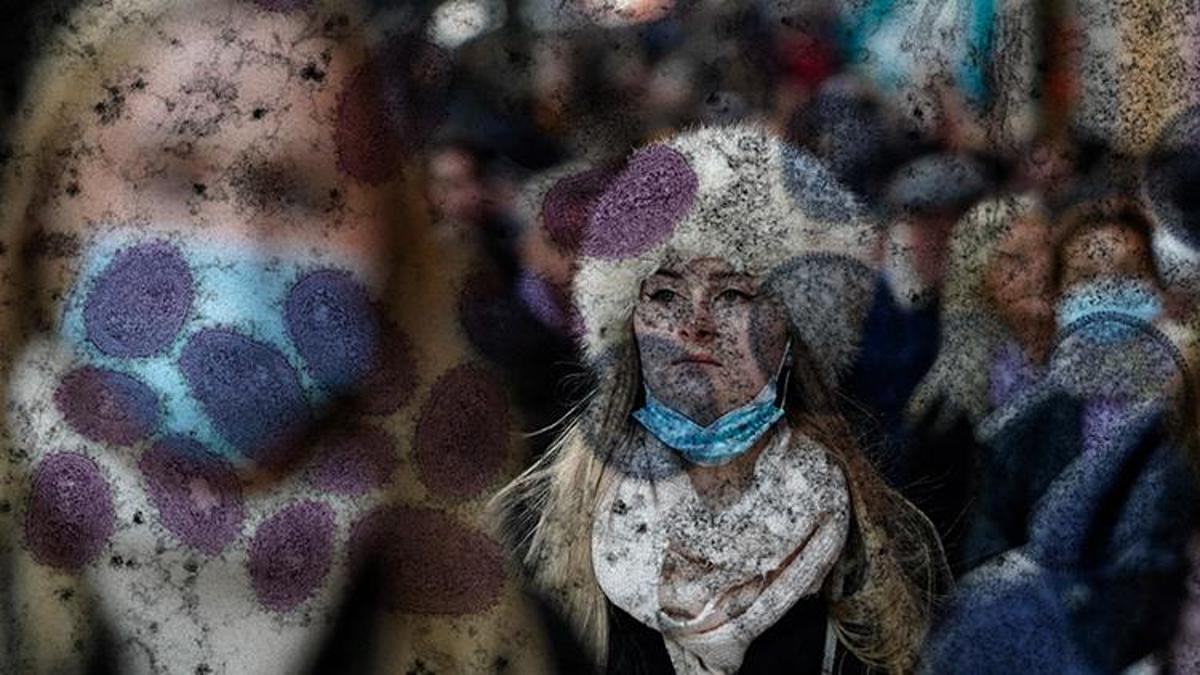class=”medianet-inline-adv”>
which entered our lives in the last days of 2019 and caused a global pandemic in a short time. Coronavirus slowly disappearing from our lives in many countries Monkey Flower virus panic.
Good news about the virus, which affects more than 4 thousand people from 46 countries The world From the Health Organization (WHO) came.
WHO has announced that Monkey Flower has not yet constituted a global public health emergency.
In the statement, it was said that ‘intense efforts are needed to control the further spread of the epidemic’ and underlined that the decision taken will be re-evaluated in a few weeks.
The first case of monkeypox outside of Africa was confirmed in the UK on 7 May, while many cases have since been detected in Australia and some countries in Europe and North America.
—
The statement comes two days after WHO Director-General Tedros Adhanom Ghebreyesus held an Emergency Committee meeting on the disease under the International Health Regulations (IHR) to address the increasing caseload.
class=”medianet-inline-adv”>
In the statement made by the WHO, it was stated that the WHO Director-General agreed with the advice presented by the IHR Emergency Committee regarding the monkeypox epidemic, and that the event does not currently constitute the highest level of global alert, a Public Health Emergency of International Concern (PHEIC).
It was also stated in the statement that the Committee unanimously acknowledged the urgency of the incident and that controlling the further spread of the epidemic required intensive response efforts, and the Committee said that a few weeks later, when more information became available about the unknowns present, the Committee to determine whether there are significant changes that may require a reconsideration of its recommendations. He recommended that it be closely monitored and reviewed.
In a written statement on the subject, Ghebreyesus said, “Noting that the Emergency Committee shares their serious concerns about the scale and speed of the current epidemic, overall, they told me in the report that the incident does not currently constitute a Public Health Emergency of International Concern, which is the highest alert level WHO can issue. ‘ said.
In addition, Ghebreyesus said he was deeply concerned about the spread of the disease and that both he and WHO were monitoring the evolving threat very closely.
class=”medianet-inline-adv”>
Ghebreyesus ‘What makes the current epidemic particularly worrying is; “The risk of rapid and continued spread to new countries and regions and a greater, sustained risk of transmission to vulnerable populations, including immunocompromised people, pregnant women and children.”
Ghebreyesus said, ‘As the committee pointed out, monkeypox has been circulating in a number of African countries for decades but has been neglected in terms of research, attention and funding. This should change not only for monkeypox but also for other neglected diseases in low-income countries because Once again, the world is reminded that health is an interconnected issue.
class=”medianet-inline-adv”>
Ghebreyesus, who thanked the scientists and public health experts from all over the world who participated in the Emergency Committee, noted that they will continue to monitor the situation closely.
ATTENTION TO THESE 5 SYMPTOMS
Experts state that the most common symptoms of the virus include fever, chills, muscle pain and fatigue.
According to doctors, the 5 most common symptoms of the virus are:
- Fire
- Headache
- Back pain
- Joint and muscle pains
- Skin rash that starts after a few days
- Most people with the monkeypox virus have a mild illness. However, one in 100 cases can be fatal.
In the spread in the USA in 2003, 47 people died.
–


/data/photo/2022/06/07/629e8ee36d343.jpg)